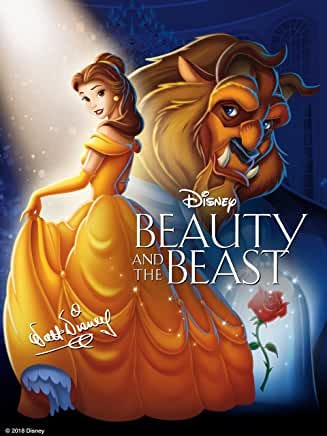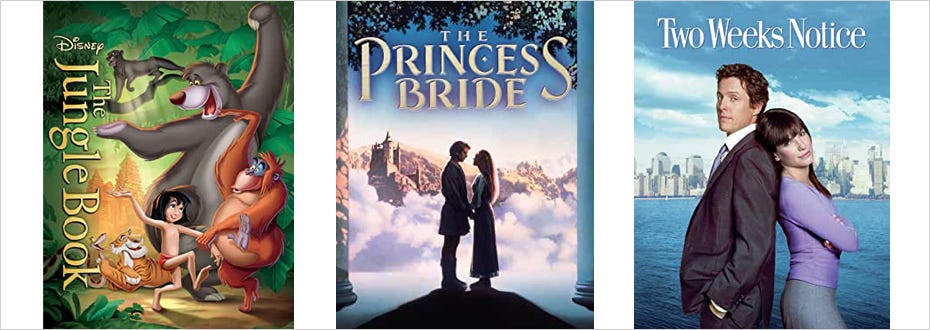Image by L.E. Wilson from RedBubble based on work by Alexas Fotos on Pixabay
The most important relationship in life is the one you have with yourself, because after that any other relationship is a plus, and not a must.
The 1960 French crime drama film, Breathless, by Jean-Luc Godard has a very interesting idea about love. The protagonist, Michel Poiccard (Jean-Paul Belmondo), a car thief and crook, is unlikeable. He steals from helpless women as well as vulnerable men, and kills a police officer without remorse. He claims to be in love with an American, Patricia Franchini (Jean Seberg), but at one point he threatens to strangle her, and he disregards her wishes whether big or small. But he wants to be with her, and we believe him. Is this enough to be defined as love?
Breathless (1960) is a drama co-written and directed by Jean-Luc Godard about Michel Poiccard (Jean-Paul Belmondo), a car thief and crook in Paris who falls in love with an American, Patricia Franchini (Jean Seberg), and tries to persuade her to help him escape to Italy.
Life Lesson: When you love someone, you protect them, no matter what.
🍿Movie Scene Link (movie quote)
The movie seems to think so, and in general so do audiences. We know this because the girl betrays him in the end, and this is seen as a betrayal precisely because we believe he loves her. But clearly she does not love him back, and says so explicitly, “since I’m being mean to you, it proves I’m not in love with you.” The movie has a beautiful explanation as to why this romance failed,
I just talked about myself, and you, yourself.
You should’ve talked about me, and me, about you.
It’s a poetic way of saying that good communication, which requires empathy, is paramount in any kind of relationship. And of course without empathy, without compassion, there is no love. So in case you too are in a fog about what love is, perhaps the Life Lesson of Breathless may help you:
When you love someone, you protect them, no matter what.
Yes, Michel is a horrible person, obviously difficult to love, but the requirements of love still apply. If you love someone, you wouldn’t be mean to them, you wouldn’t let them be attacked by others, even if it’s deserved or justified, and you wouldn’t cheer for another to prevail over them. In other words, you wouldn’t side with strangers against your partner. This loyalty is love. Without it, there is no love—just familiarity, someone you know. In this way we can define love by what it’s not: love is not betrayal.
The 1941 film noir drama The Maltese Falcon, starring Humphrey Bogart as no nonsense cynical private detective Sam Spade, pits duty toward one person against love for another to depict betrayal. “When a man’s partner is killed, he’s supposed to do something about it.” At least that is what he tells his lover, Brigid O’Shaughnessy (Mary Astor). But of course he has other reasons, namely that he can’t trust her and that he “won’t play the sap” for her and be blamed for a crime she committed. “All we’ve got is that maybe you love me and maybe I love you,” he tells her. She responds, “you know down deep in your heart that in spite of anything I’ve done, I love you.” But it’s to no avail, “I don’t care who loves who, I won’t play the sap for you!” he shouts. And that is that. So much for love.
Of course the police state coercively tries to undermine this expression of love— loyalty—by severely punishing the “aiding and abetting” of suspected criminals. But doesn’t this demonstrate that it is indeed a manifestation of true love to put yourself at risk to help another strictly out of affection for them, and in spite of any improper things they may have done? Also, these types of laws have likely been put in place because for most people it’s a natural reaction to try to protect someone they love no matter what, isn’t it? Therefore, we must ask ourselves, is a society that does not cultivate loyalty—is lacking in familial ties that bind, and instead demands conformity to social mores even if doing so harms someone they are supposed to love—really a moral society?
The movie Swing Kids says “no” by showing us the absolute horror that follows when one of the main characters denounces his own father to the Nazis that control the government, who then storm in and take him away from the family home. When outside forces like this can break what should be unbreakable bonds between family members, the decline of such a society seems inevitable. If your love for someone cannot protect them from you, then what good is it? The people you love will sometimes justifiably break some rules, whether they are unjust laws or simple conventions of decorum.
The question then is, are you the type of person who would be overcome by a sense of wanting to protect someone you love, even if you agree they did something wrong, or do you subscribe to the idea that the overall society is more important, and are therefore willing to sacrifice your own family members, turn them in to the proper authorities, to maintain and uphold the rules set up by others that mostly benefit unseen strangers and may even do so at the expense of your loved ones?
The former is undisputedly love, the latter may well be what some call “tough love,” which is certainly not romantic or very compassionate, and seems more akin to machine logic, unfeeling and bureaucratic. The former prioritizes the person you know over those you don’t, while the latter does the inverse. Which is better? Are you as an individual safer in a society where you know your loved ones will protect you no matter what, or one where you can’t expect loyalty from your family and must rely on strangers to protect you and show you mercy simply because they are rule oriented and show no loyalty to their loved ones should one of them break a rule?
If this is a tough dilemma, perhaps some additional messages found in movies about what true love is will be more illuminating.
To get a simpler definition of love, it may be constructive to find the simplest case possible, the opposite of Breathless, which is the difficulty in loving someone unlikable, to the ease of loving someone very likable, as in the animated movie Beauty and the Beast.
Beauty and the Beast (1991) is an animated fantasy co-directed by Gary Trousdale and Kirk Wise about a scholarly young woman, Belle (Paige O’Hara), who rescues her father (Rex Everhart) from an enchanted castle’s prison by taking his place, and teaches their captor, an angry beast-prince (Robby Benson), how to love.
The easiest thing in the world to do is love someone who is pleasant, intelligent, and attractive. It’s completely effortless, in fact. So one answer to finding love is to make yourself likable (usually by being kind and funny), witty (by getting some sort of education), and attractive (by being young and fit)—for who could love a beast, really?
But Beauty and the Beast’s Life Lesson is actually more profound:
Life Lesson: In order to love someone, you cannot be spoiled, selfish or unkind.
🍿Movie Scene Link (movie quote)
Loving someone is not about them, what they look like, how they act, or what they say. It’s about you not being so self-centered that you are unable to see the beauty and wonder of another, imperfect, being. Loving someone else is a selfless act in that quite miraculously your own natural sense of self-interest and introspective navel-gazing is interrupted so that you can admire and care for someone else. Love is truly a miracle, and perhaps the reason why it may be much rarer than it seems.
Love is the expression of the one who loves, not of the one who is loved. Those who think they can love only the people they prefer do not love at all. Love discovers truths about individuals that others cannot see. — Søren Kierkegaard
But if it’s difficult to define what love is, can we see what love looks like?
Three movies have variations of the same theme, selflessness:
The Jungle Book (1967)
Life Lesson: Do what is best for the ones you love.
The Princess Bride (1987)
Life Lesson: True love means being able to say “as you wish.”
Two Weeks Notice (2002)
Life Lesson: Love makes you want to be a better person.
Anytime you notice someone doing something selfless for you, hold on to that person, nurture that relationship, and reciprocate as much as possible. In a competitive and sometimes vicious world, selflessness is quite an astonishing feat. Acting in a selfless manner, in other words, is love.
Three additional movies tell us that love is also strength:
Sleeping Beauty (1959)
Life Lesson: True love conquers all.
Punch-Drunk Love (2002)
Movie Scene: Barry: I have so much strength in me. You have no idea. I have a love in my life. It makes me stronger than anything you can imagine.
50 First Dates (2004)
Life Lesson: Loving someone will not keep you from your ambitions; it will help you reach them.
Of course one of the most cinematic representations of love as strength is the punch thrown by George McFly (Crispin Glover) in Back to the Future (1985) when he protects the woman he loves against the bully Biff Tannen (Thomas F. Wilson). The message in these movies is that love itself will help you overcome obstacles and achieve goals because love fills you with power, with purpose, and with drive.
But perhaps the most encompassing definition of true love comes from the movie,
The Joy Luck Club (1993)
Life Lesson: When someone loves you, they see the best in you.
How much more secure and uplifted would you feel if you knew for sure that there was someone who always saw you in the best light? Would such a person put a stranger’s wellbeing above yours? It doesn’t seem likely, does it? Would such a person have the courage and fortitude to be loyal to you? Seems almost inevitable, doesn’t it? Hence, these ideas seem deeply intertwined: love, loyalty, selflessness, and strength.
But these are ideals, after all. The reality may be that there is no pure, true, eternal, unflinching, uncompromising, unbounded, unconditional love. But that’s why we go to the movies, and try to do the best we can.
Visit the moviewise catalogue—a searchable database of one sentence movie summaries, movie quotes, and movie wisdom—for movie recommendations.
Also visit the moviewise store. Get a t-shirt, bag, or pillow with your favorite #LifeLesson from a movie. Reply to this or leave a comment below to make a request.













So, lovely, your comment on "Why We Write and Why We Don't" at https://marytabor.substack.com/p/why-we-write-and-why-we-dont-lesson
that brought me to this page. We so agree about risk and love. As I quote philosopher Edmund Jabés, "There is no writing without risk" and there is no love without risk--or as you put it, no living without risk. I also love our discussion of all caps ART that followed your guest post here: https://marytabor.substack.com/p/the-art-of-the-screenplay. xo
I have always felt that when you love someone, that love will remain, even though there may be times when you don't like that person very well. At least, you don't like their behavior.